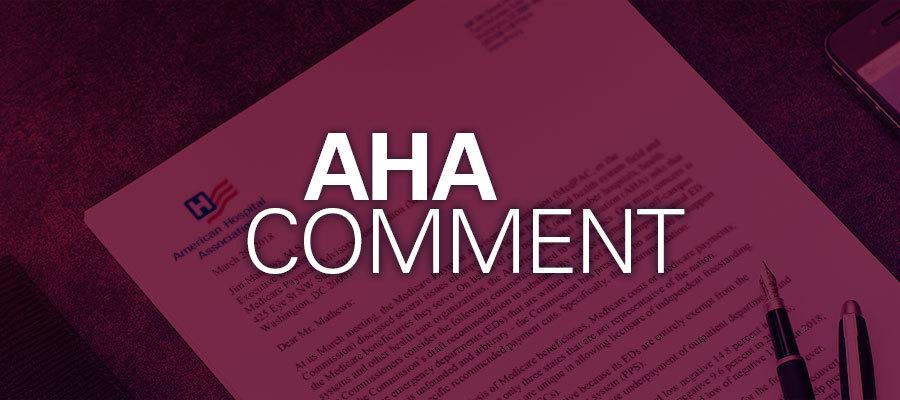AHA letter to editor: Insurers key to health care cost transparency

Regarding Modern Healthcare's Sept. 27 editorial: Hospitals and health systems understand — and share — consumers’ frustrations with understanding how much they will be expected to pay for care. And that’s why the field has advocated for solutions.
Hospitals are working to supply information on consumers’ expected out-of-pocket costs. In addition to having counselors to provide information, many hospitals provide some online tools to help patients obtain cost information; others are working to develop them.
But we can’t supply accurate, useful information without insurers stepping up. That’s why we’ve urged policymakers to remove the most significant barrier: provider access to accurate cost-sharing information. Insurers know what an individual pays given their specific benefit design and where they are in meeting their deductible, yet providers routinely struggle to get this necessary information. Often, requests are ignored or providers receive incomplete or inaccurate information.
The government can help by explicitly requiring insurers to respond to all inquiries with up-to-date information and to develop a secure and accurate out-of-pocket cost estimator tool for providers. This would go a long way toward enabling hospitals to generate a patient’s specific out-of-pocket cost information.
We also understand the frustration patients have related to surprise medical bills. That’s why, unlike other groups, we very much want this issue addressed this year by Congress.
That’s why protecting patients and taking them out of the middle of negotiations between providers and health plans was at the top of the list of guiding principles we shared with legislators earlier this year. In addition, insurers should maintain adequate networks for access, which rate-setting proposals currently under consideration would inhibit.
While some criticize us for opposing some of the Administration’s proposals, when it acts without the legal authority to alter a congressional policy, it is up to us to challenge it.
Whether it’s about adequate payments for different sites of care, protecting coverage, preserving the integrity of 340B, or clearing the nearly endless Medicare appeals backlog, these programs support hospitals’ ability to serve their communities and deserve a vigorous defense.

